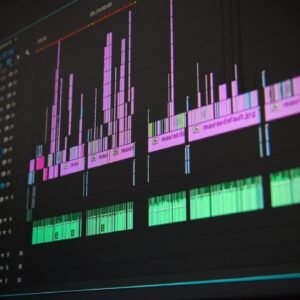Oh snap! You just got done spilling your hot coffee on your keyboard because you accidentally left a comment on your favorite far left musicians fan page, and the next thing you know the manager is calling you. Here’s how to not reply to a comment when it’s about far left musicians.
In this article, I will talk about “Far Left Musicians”. Let’s start.
Are The Members Of Rage Against The Machine Wealthy?
The band Rage Against the Machine has been a major force in the music industry. The group was formed in 1991 by guitarist Tom Morello, bassist Tim Commerford, drummer Brad Wilk and vocalist Zack de la Rocha. They released their self-titled debut album in 1992 and achieved commercial success with their second album titled Evil Empire (1996).
The band broke up in 2000 but reunited in 2007 for a tour which lasted until 2011. In 2013, they made an announcement that they were working on new material but nothing has come of it since then.
The members of Rage Against the Machine, who reunited for a tour this year, are some of the most outspoken musicians out there.
They’ve been known to criticize U.S. foreign policy and capitalism, and even called for the overthrow of President George W. Bush in 2003.
But how much money do these guys make?
The band was formed in 1991 by vocalist Zack de la Rocha, guitarist Tom Morello and drummer Brad Wilk. Guitarist Tim Commerford joined in 1993 and bassist Timmy C (now Chris Cornell) joined in 1995.
Rage Against the Machine released four studio albums between 1992 and 2000 before breaking up in 2000 due to creative differences: Rage Against the Machine (1992); Evil Empire (1996); The Battle of Los Angeles (1999); Renegades (2000).
The group reunited in 2007 with De La Rocha, Morello and Wilk performing together again at several shows over the next few years including a 2008 benefit concert for presidential candidate Barack Obama at Berkeley’s Greek Theater in California where they performed “Killing In The Name Of” with an audience-wide singalong finale that lasted well over five minutes long!
Does Tom Morello Donate To Charity?
Tom Morello is a political activist and musician. He has been the guitarist for Rage Against the Machine, Audioslave, Street Sweeper Social Club, and Prophets of Rage. He has also been a touring musician for Bruce Springsteen and the E Street Band.
But what do we know about Tom Morello’s charity work?
Tom Morello founded the Axis of Justice organization with Serj Tankian of System of a Down and Chuck D from Public Enemy. The purpose of this organization is to “promote social justice through music events, educational activities, and advocacy opportunities.”
Tom has donated time and money to many different charities including Amnesty International, Oxfam America, United Way, Doctors Without Borders/Medecins Sans Frontieres (MSF), Environmental Defense Fund (EDF) and Save Darfur Coalition. In 2010 he co-founded Axis of Justice: Music Saves Lives which raises money for various organizations including Planned Parenthood Federation of America (PPFA) and Oxfam America by playing benefit concerts throughout North America.

Were The Clash Communists?
The Clash were a British punk rock band formed in 1976 as part of the original wave of British punk. Along with punk rock, they experimented with reggae, ska, dub, funk and rockabilly. For most of their recording career the Clash consisted of Joe Strummer (lead vocals, rhythm guitar), Mick Jones (lead guitar, vocals), Paul Simonon (bass guitar) and Nicky “Topper” Headon (drums).
The Clash’s music was heavily influenced by Jamaican reggae and the R&B era in 1950s America, but they also drew on musical styles that were not popularly associated with punk at the time, including ska, dub and funk.
Their debut album, The Clash (1977), was ranked No. 22 on Rolling Stone magazine’s list of the 500 Greatest Albums of All Time. It was certified triple platinum in the U.S., selling over 3 million copies there. Their second album London Calling (1979) was ranked No. 23 on Rolling Stone’s list of 100 Best Albums; it has been certified platinum in the U.S., having sold over 2 million copies there.
Is Billie Joe Armstrong A Socialist?
Billie Joe Armstrong, lead singer and guitarist of Green Day, is a socialist. He has been an outspoken advocate of Barack Obama and the Occupy Wall Street Movement. He has been known to wear Che Guevara shirts and t-shirts with the Communist Manifesto printed on them.
He has explained his views in interviews, but he has not written about them in any detail. He does not seem to be a student of economics or political science; he is more interested in social justice than policy details.
In an interview with Rolling Stone magazine, Armstrong said: “I believe in socialism because it seems more fair to me than capitalism.” He added that he was not a communist because communism had failed to deliver on its promises in Russia and China.
Armstrong said he supports President Barack Obama because he believes that Obama’s policies are better for working people than those proposed by Republicans Mitt Romney and Paul Ryan.

Are Pearl Jam A Socialist Band?
Pearl Jam is a rock band that was formed in Seattle, Washington in 1990. The band consists of Eddie Vedder (lead vocals), Mike McCready (lead guitar), Stone Gossard (rhythm guitar), Jeff Ament (bass), and Matt Cameron (drums).
Pearl Jam has sold over 60 million records worldwide, making them the fifth best-selling artist to emerge from the grunge movement of the early 1990s. The group has won five Grammy Awards, including one for Best Alternative Music Album for Yield in 1999.
In 1992, Pearl Jam’s debut album Ten was released. The album featured the singles “Alive”, “Even Flow”, “Jeremy”, and “Oceans”. Ten became a huge commercial success; it topped the Billboard 200 chart for 11 consecutive weeks, becoming the first album to do so since Peter Frampton’s 1976 album Frampton Comes Alive!. Ten was certified 13x platinum by the RIAA in 1998 and has sold more than 18 million copies in the United States alone as of 2018.[1][2]
Are Pearl Jam A Socialist Band?
FAQs for Far Left Musicians
Now that you understand “Far Left Musicians”, let’s move on to the FAQ section.
Is Punk Rock Political?
For some people, punk rock is a political statement. For others, it’s just about having fun. And then there’s the punk rock that falls somewhere in between.
The question of whether or not punk is political came up recently during a discussion on Facebook about Dead Kennedys’ song “MTV – Get Off The Air.” The song was written in response to MTV’s decision to play music videos by artists like Madonna and Cyndi Lauper (neither of whom were particularly political), but not ones by Dead Kennedys or other more left-leaning bands.
A friend argued that punk rock is inherently political because it’s an expression of frustration with the status quo — and that frustration is often the result of inequalities brought about by capitalism and white supremacy. I responded that while I agree with him on those points, I don’t think all punk music has to be explicitly political in its lyrics for them to make a statement about society as it exists today.
What Drugs Did Punks Do?
Punks were a rebellious bunch, which is why they had such a bad rap. They were loud, they were disruptive and they didn’t care what anyone else thought of them. Punks were also into some pretty weird stuff.
While these days people associate punk rock with anarchy and anarchy with drugs, the truth is that most punks weren’t too interested in drugs at all. They were into booze and booze alone — usually cheap beer or vodka.
The stereotype of punks as drug users was born out of their early days in London in the 1970s when The Sex Pistols would do heroin together before going onstage. However, this was not representative of the majority of punks who just wanted to get drunk and have fun without worrying about what other people thought of them.
In the 1970s and ’80s, punk rock was a countercultural movement that celebrated the idea of being different. It was part of a larger movement known as punk subculture, which included the use of drugs.
Drugs and alcohol have always been associated with music culture, but in the case of punk rock — or at least its beginnings — drugs were not as prevalent as some might think. The author of “Punk: An Aesthetic” writes that “For all their rebellious posturing, punks weren’t much different from their hippie predecessors in their attitudes toward drugs and alcohol.” He adds that drug use didn’t become part of punk subculture until later on in its history when it became more mainstream.
What Were Punks Rebelling Against?
In the 1960s, a new brand of music emerged from the United Kingdom that was in direct response to the conservative and conformist nature of the times. The punk rock movement was born out of this rebellion against the status quo, and while it was short-lived, it has had an everlasting impact on modern music.
What were punks rebelling against?
Punk rock is known for its loud and abrasive sound. The music is characterized by distorted guitars and simple, often shouted lyrics. Punk bands are also known for their DIY approach to making music: they have little tolerance for corporate backing or mainstream success.
The movement’s origins can be traced back to the 1960s with bands like The Velvet Underground and The Stooges, who used their music as an outlet for their anger towards society. But it wasn’t until 1976 that punk truly took off in Britain when Sex Pistols frontman Johnny Rotten launched into a tirade against Queen Elizabeth II during a concert at London’s Hyde Park. This outburst led to media attention focused on punk’s anti-establishment stance and encouraged others to follow suit by creating their own punk bands.
Is Liberal Against Rise?
I’ve been wondering about this for a long time. I’ve seen enough evidence to suggest that left-wing musicians are against the rise of the far right, but I haven’t seen any evidence that they’re actually against it.
So, dear reader, I’m asking you: Is there any evidence that liberal musicians are against the rise of the far right?
Tl;dr: Are you a liberal musician who is against the rise of the far right? If so, could you please tweet me some links or screenshots?
I’m looking for evidence that liberal musicians are opposed to increasing intolerance and bigotry in society.
Is Liberal Against Rise?
Liberalism has a problem. A big one.
The problem is that it’s become the refuge of white people who aren’t racist. And so long as it remains so, it’s a dead end.
This is not just my opinion, but a consensus view among many of us who have been involved in politics for decades. The fact that liberals seem to be losing ground to conservatives — even though most Americans self-identify as liberal — is part of the problem.
I think there are several reasons why liberalism has been unable to offer an effective response to rising racism and other forms of bigotry:
Liberalism has become too narrowly focused on issues such as economic inequality, climate change, and reproductive rights. These are important issues, but they’re not enough for many voters if they don’t feel that their lives are improving or will improve in the future. Liberals need to speak more directly about how government can help people get good jobs and improve their lives; how new technologies can bring greater prosperity; how our nation’s infrastructure needs rebuilding; how we should expand health care coverage; how our public schools need reform; and on and on.
What Does Niratias Stand For?
Niratias is a music-centric social network. We hope to provide a platform for artists who are deeply passionate about their music and want to connect with their fans.
Niratias stands for “the sound of the universe.” It’s also a Sanskrit word that means “universe” or “whole”. The name was chosen because Niratias is an attempt to unite people from different backgrounds and cultures through music.
Our mission is to empower musicians by connecting them with their fans and helping them build their brand.
Niratias is the name of a band.
The word Niratias is derived from two words: “Nir” meaning “to fly” and “Ato” which means “to be.” The band name therefore means “To Fly To Be.”
The members of Niratias are all people who have had some sort of experience with life-changing events. They have gone through painful situations, but they have risen above them to become better than they were before.
Why Did Chevelle Bassist Leave?
Chevelle has been one of the most successful rock bands in recent history. The band has sold over a million albums, with each release selling more than its predecessor. In fact, the band’s last three albums have gone platinum.
So why did Chevelle bassist Dean Bernardini leave the band?
The answer is simple: He was tired of touring.
Bernardini was one of the founding members of Chevelle and played with them from their inception in 1995 until his departure in 2009. His decision to leave came as a surprise to fans, who were used to seeing him on stage with his brother Pete and brother-in-law Joe Loeffler for every concert date.
“I got married and had kids,” Bernardini told Rock Star Daily News. “I just wanted to do something different with my life.”
But he still stays connected to music by playing with two bands: The People’s Whiskey and Cinder Road. And he doesn’t rule out an eventual return to Chevelle if they want him back or if they need someone else on stage while they’re touring behind their new album (which is due out this fall).
Conclusion for Far Left Musicians
To sum up, far left musicians have their place in the music world–they often help pave the way for new genres and are at the forefront of a revolution in music. Though they may not be as mainstream as other types of musicians, far left musicians are still able to achieve a modicum of fame, if not on their own merit, but because of their associations with more mainstream bands. The world of far left politics (and far left music) is complex–and it is likely that we did not capture every nuance here. However, we do believe this piece provides a comprehensive overview of some of the features associated with far left politics and some of the most famous far left political groups and individuals who wield influence in those systems.
Thank you for reading, and I hope you get the point of “Far Left Musicians”. If not, please contact me or leave a comment below. I would be pleased to help in any way I can.




